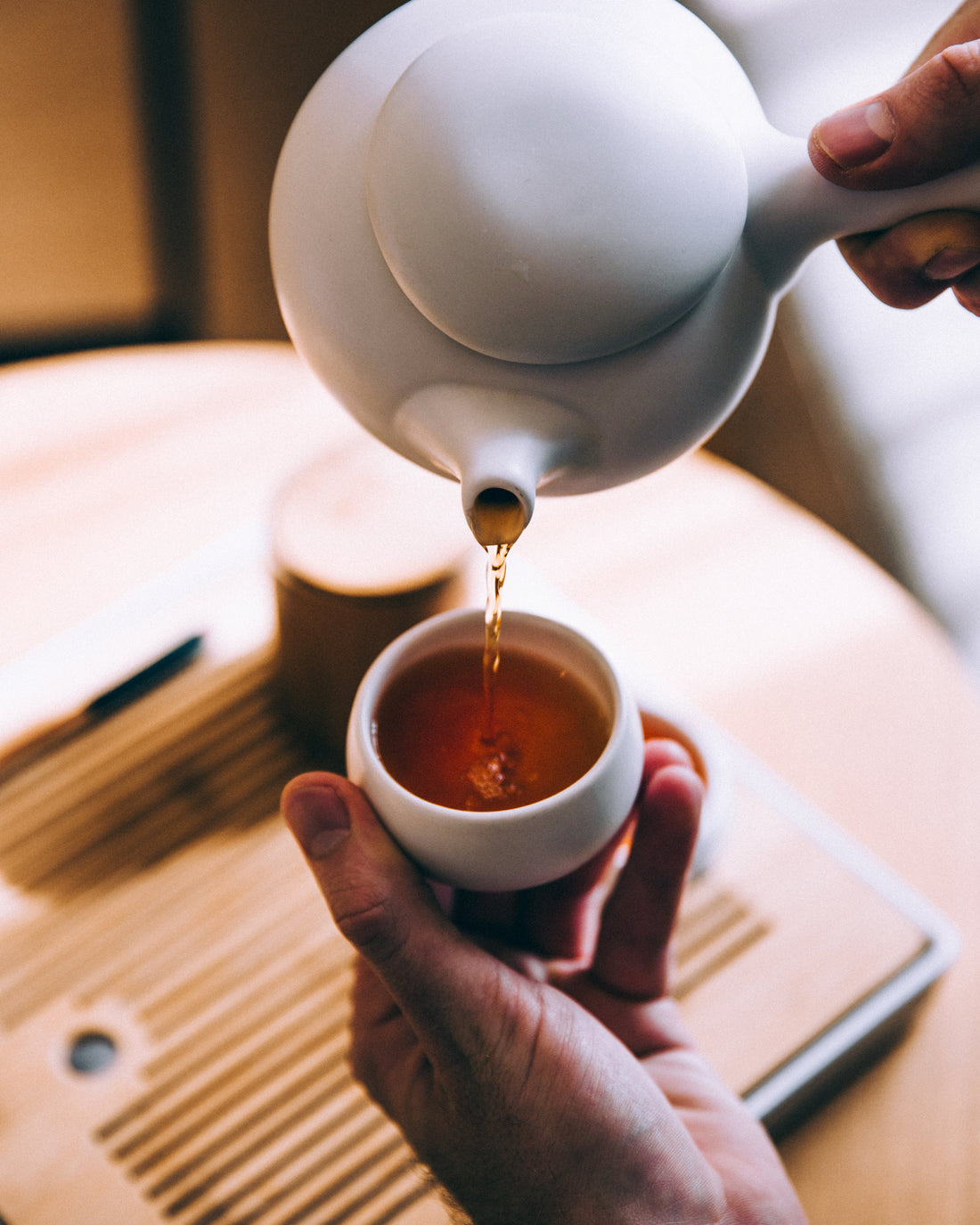
How to Manage Stress: 5 TCM-Inspired Natural Remedies
Introduction
In today's fast-paced city life, stress has become an everyday element of our daily existence. From the relentless hustle and bustle of urban environments to the pressures of modern work and study, stress can easily creep into our lives, affecting our physical and mental well-being.
According to a survey by the Mental Health Foundation, approximately 74% of adults in the UK have felt overwhelmed or unable to cope due to stress. In 2023, it was also found that stress was the fifth most common cause for short-term absences from work in the UK. Fortunately, there are natural remedies rooted in Traditional Chinese Medicine (TCM) and holistic practices that can help alleviate stress and greatly improve one’s quality of life.
What Causes Stress?
1. Work Stress
Career excellence is a priority for many career-oriented individuals. The workplace is an undeniable source of pressure that can build up over time and lead to stress. Long hours, overtime, competition, deadlines, work travel and even toxic behaviours at the workplace in some instances can lead to feelings of overwhelm, which can eventually cause burnout.
In 2024, Nuwa conducted a survey amongst 100 UK residents (aged 24-44 years old), which found that 50% cited career and professional excellence as a top priority, even above other priorities like physical fitness, appearance, social life, self-care, and overall health.
2. Everyday Stressors
Daily life is full of stressors that can build up over time. For many, the demands of city living—long commutes, noisy environments, and crowded public spaces— can be overstimulating and contribute significantly to stress levels.
3. Major Life Changes
Life transitions can also be significant sources of stress. The arrival of a new baby brings joy but also sleepless nights and new responsibilities. Moving to a new house, while exciting, can be a daunting task that requires planning, packing, and adjusting to a new environment. Grieving the loss of a loved one can also be a long and challenging process, often accompanied by feelings of sadness, anxiety, and disruption in daily life.
4. Illness
Personal or family health issues can create a significant emotional burden, leading to stress. Chronic illnesses, sudden health scares, or even the day-to-day worries about health can weigh heavily on the mind.
What are the Symptoms of Stress?
What does Traditional Chinese Medicine (TCM) say about Stress?
TCM offers a unique perspective on stress: stress disrupts healthy Qi flow in three main TCM Organs*, causing imbalance and health impacts, which we will explore in this article.
a. Liver and Stress
In TCM, the relationship between Liver imbalance and stress is a two-way interaction.
Liver Stagnation causes Stress
In TCM, the Liver’s primary function is to ensure the smooth flow of Qi throughout the body. When Liver Qi becomes stagnant or constrained, it disrupts the smooth circulation of Qi, leading to emotional disturbances such as irritability, frustration and depression. Physical symptoms of Liver Qi stagnation may include tension, tightness in the chest, digestive issues, headaches, or menstrual irregularities in women.
Stress also affects the Liver
On the flip side, stress itself also negatively impacts the Liver. Prolonged emotional stress can further impede the Liver’s ability to regulate Qi, exacerbating the stagnation and creating a vicious cycle. Over time, this can lead to more severe imbalances, manifesting with symptoms like anger, migraines, dizziness, and hypertension.
b. Liver Stagnation and Spleen Function
When the Liver Qi becomes stagnant due to stress, it disrupts Qi flow to the Spleen, known as “Liver Overacting on the Spleen” (肝郁乘脾) in TCM.
Because the Spleen relies on a smooth and harmonious flow of Qi to properly digest and transform food into nutrients, the stagnation of Liver Qi can hinder this process. This results in “Spleen Qi Deficiency” (脾气虚), leading to digestive issues like poor appetite, bloating, abdominal distention, diarrhoea, or loose stools.
c. Heart and Stress
The Heart in TCM is closely tied to mental and emotional health, as it houses the Shen (神), or spirit. When one feels overwhelmed for a long time, it can put stress on the Heart and Shen, leading to anxiety, insomnia, restlessness, and palpitations.
The Impact of Long-Term, Prolonged Stress – Why Should We Care?
Long-term exposure to stress can have serious consequences on both physical and mental health. Chronic stress is linked to mitochondrial dysfunction, which affects energy production at the cellular level, often leading to burnout and chronic fatigue as emotion regulation becomes impeded. Individuals may therefore find it increasingly difficult to bounce back from stressors, leading to a cycle of exhaustion and decreased resilience. In the same vein, studies have found a relationship between mitochondrial dysfunction and major depressive disorder.
Prolonged stress can also contribute to various health issues, including cardiovascular disease, digestive problems, and weakened immune function. Therefore, managing stress is not just about feeling better in the moment; it's about safeguarding long-term health and well-being.
TCM-Inspired Natural Remedies for Stress
Stress is an inevitable part of city life, and coping with stress has become part and parcel of everyday life. Therefore, finding effective and accessible ways to cope with stress is paramount, as it has a direct impact on health and well-being.
Try these 5 TCM-inspired**, natural home remedies to observe mental, physical and emotional benefits in the long run:
1. Tea as 'medicine'
Rose tea is known in TCM for its calming properties and can be a wonderful addition to evening routines. The natural compounds in rose petals help to reduce anxiety and promote a restful night's sleep. Consider blending rose tea with chrysanthemum, chamomile, or peppermint for added calming benefits.
2. Simple Acupressure Points
By applying gentle pressure to specific acupressure points on the body, this could be a quick and effective way to relieve stress. Using a free hand, press the space between the thumb and index finger. Also known as the “Union Valley” (He Gu), this point is believed to help alleviate tension and stress in the body.
3. Diet as Medicine
As mentioned earlier, stress can lead to a “Qi” deficiency and vice versa. A “Qi” deficiency might be influenced by the spleen, which carries “Qi” to other parts of the body.
4. Natural food supplements
Reishi Mushroom
Reishi is an Asian botanical which has been used in Traditional Chinese Medicine over thousands of years. Also known as an adaptogen, which are compounds that help our body manage stress and return our body back to balance. Studies have shown that Reishi supports primary neurotransmitters in the brain that are responsible for regulating relaxation, possibly easing nervousness and low mood.
5. Equal Breathing
In times of stress and anxiety, most people tend to hold their breaths and lock their jaws. To combat this, simple breathing techniques like equal breathing can help to regulate circulation and promote blood flow to calm the mind down. Beginners can start by breathing in and out for the same amount of time each for 3 - 5 rounds either seated or lying down.
*On this blog, the first letter of Organs (e.g. Heart, Spleen, Kidney) has been capitalised. In TCM, the ‘Organ’ refers to its energetic function, rather than its anatomical structure
** We want to make clear that the brand is inspired by TCM principles. We do want to highlight that Nuwa products are food supplements designed to aid productivity - they are not medicines and cannot treat or cure disease






